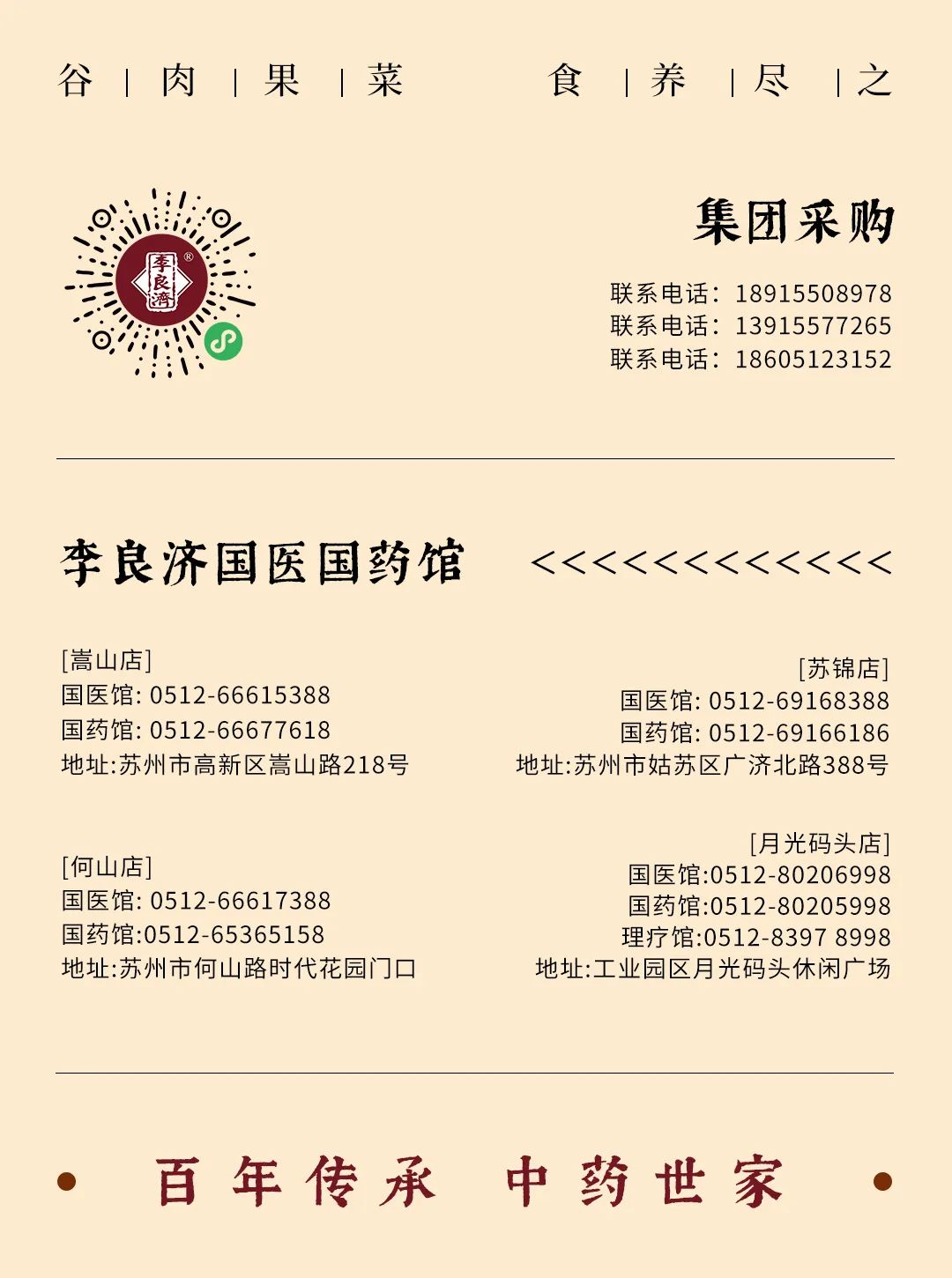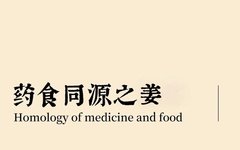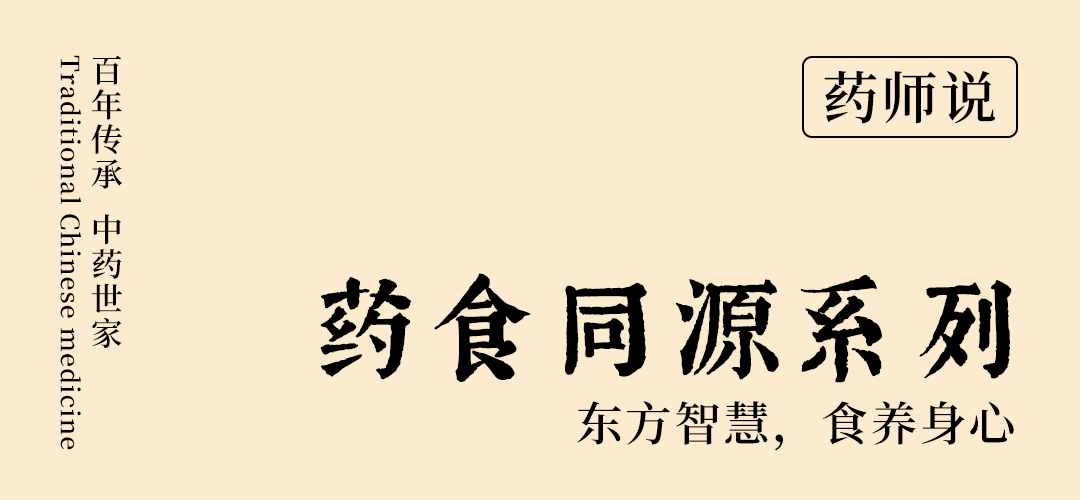
Traditional Chinese Medicine (TCM) has a long history, and since “Shennong tasted hundreds of herbs,” the concepts of “medicine” and “food” have been inseparable. This has led to the unique culture of “food and medicine sharing the same source,” which posits that many foods can serve as both food and medicine, capable of preventing and treating diseases.
In recent years, the National Health Commission has successively released relevant policies to regulate products that share the same source as food and medicine. Currently, over a hundred substances are recognized as traditional foods and are included in the “Pharmacopoeia of the People’s Republic of China” (hereinafter referred to as the “Chinese Pharmacopoeia”).
The series on food and medicine sharing the same source will introduce these substances one by one.
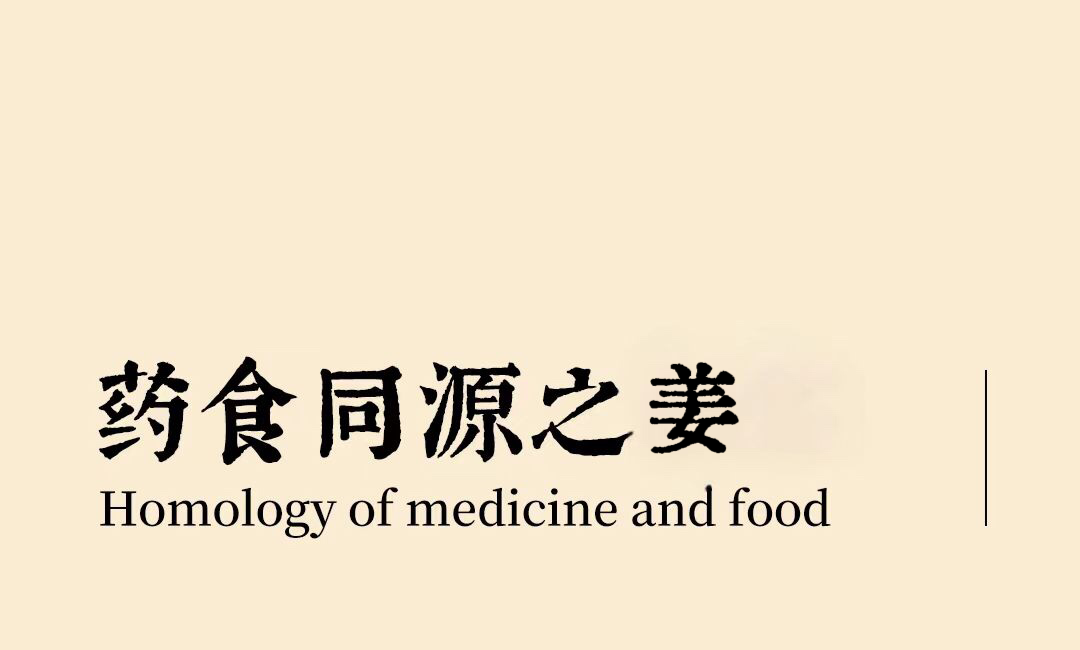
Ginger is a particularly common ingredient, a staple seasoning in every household kitchen. Dried ginger, harvested in the autumn and winter seasons, is also a widely used medicinal herb.
Research has shown that ginger contains components such as gingerol, ginger essential oil, and diphenylheptane, which have effects such as anti-nausea, cardiotonic, and anti-inflammatory properties. It has good therapeutic effects on diseases like colds and vomiting, and it plays a role in the prevention and treatment of cardiovascular diseases and tumors.
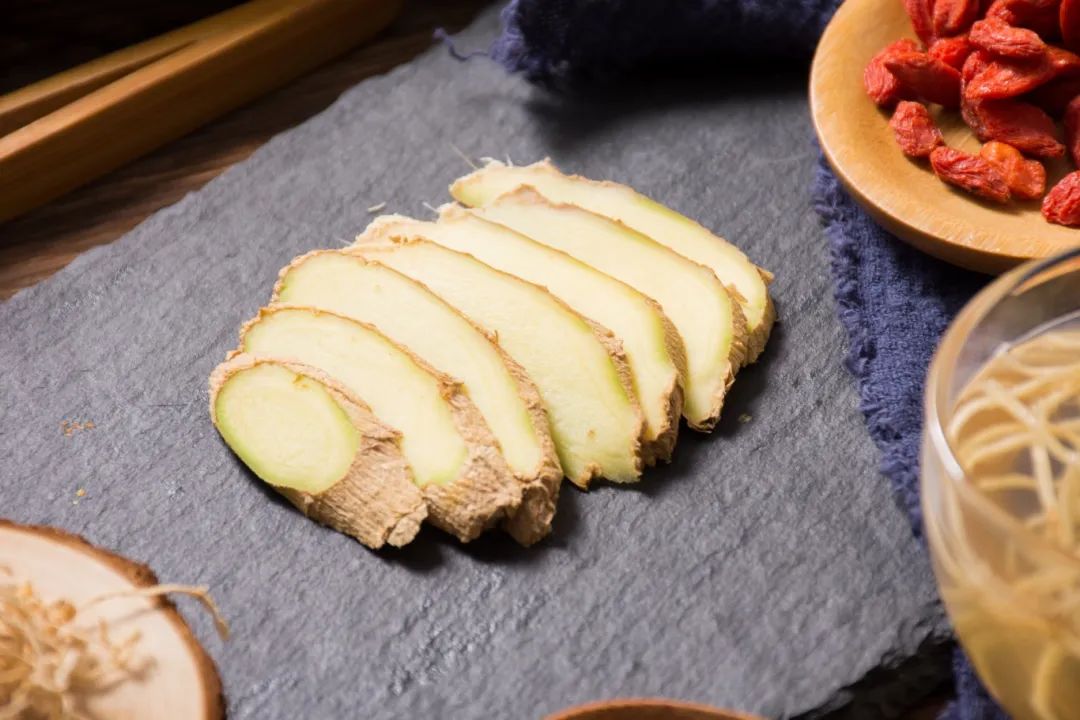
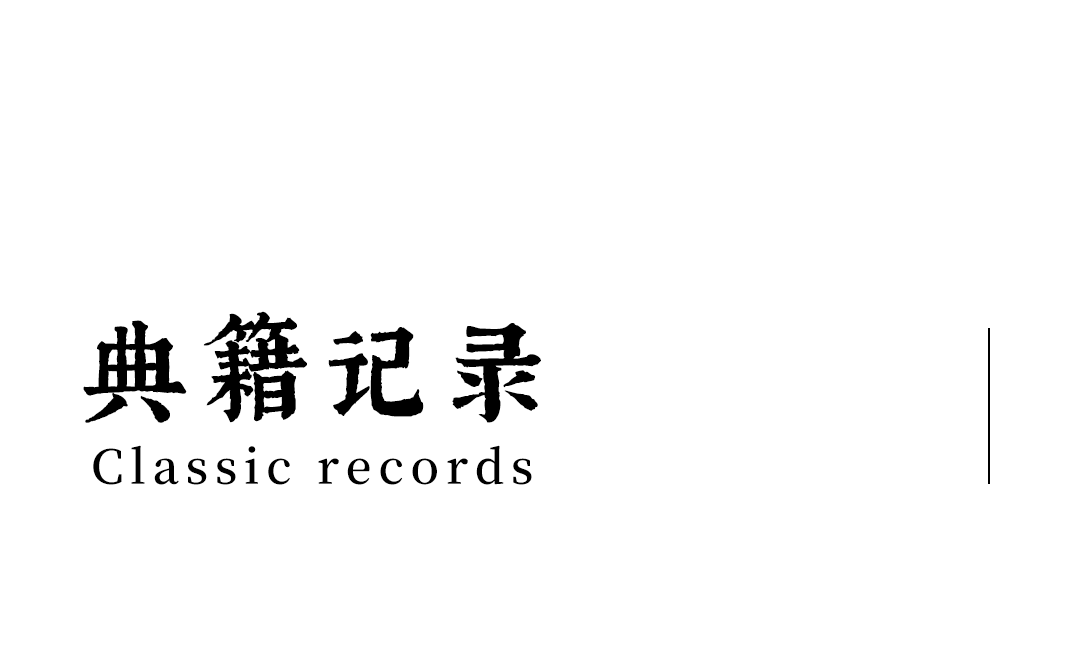
According to the “Pharmacopoeia,” dried ginger (Gan Jiang), has a pungent flavor and is warm in nature. It enters the Spleen (Pi), Stomach (Wei), Kidney (Shen), Heart (Xin), and Lung (Fei) meridians. It warms the middle, disperses cold, revives Yang, and opens the meridians. It is used for cold pain in the abdomen, vomiting, diarrhea, cold limbs with weak pulse, and cough due to cold phlegm.
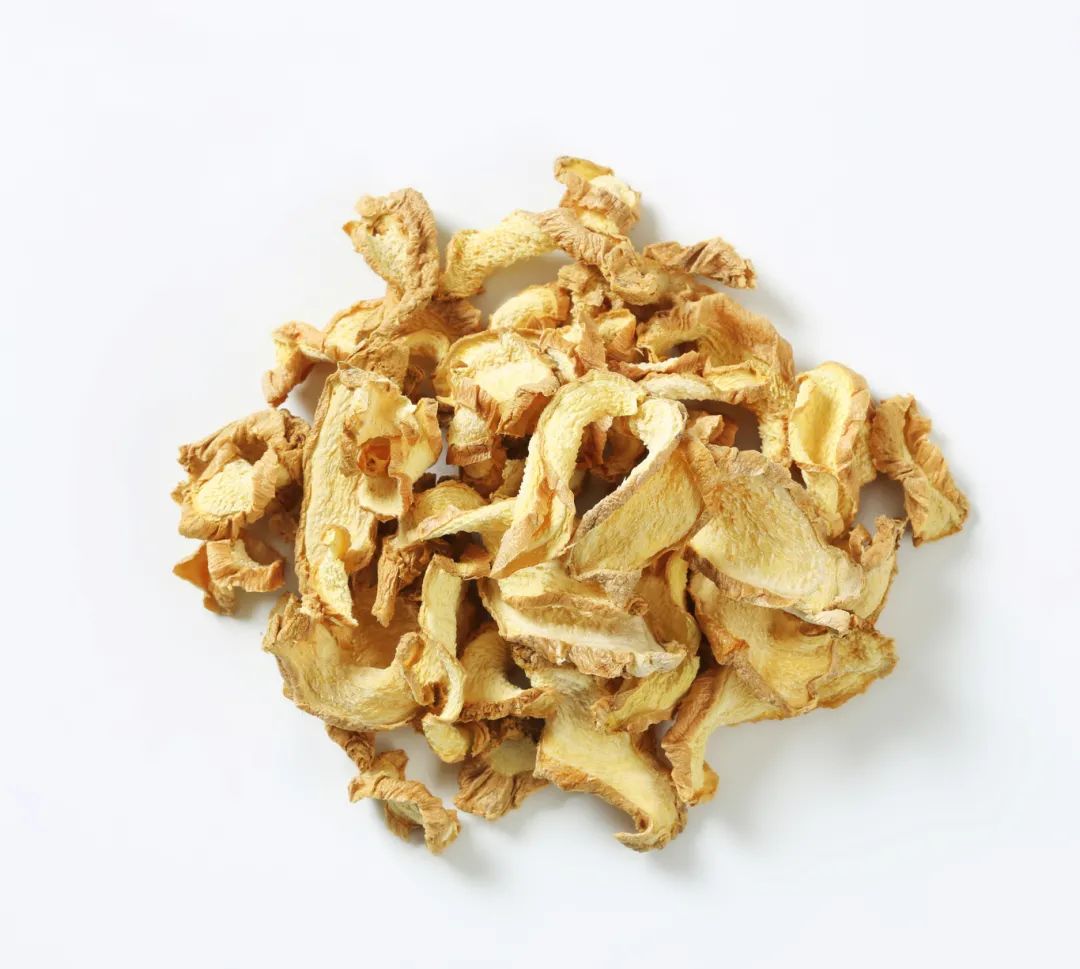
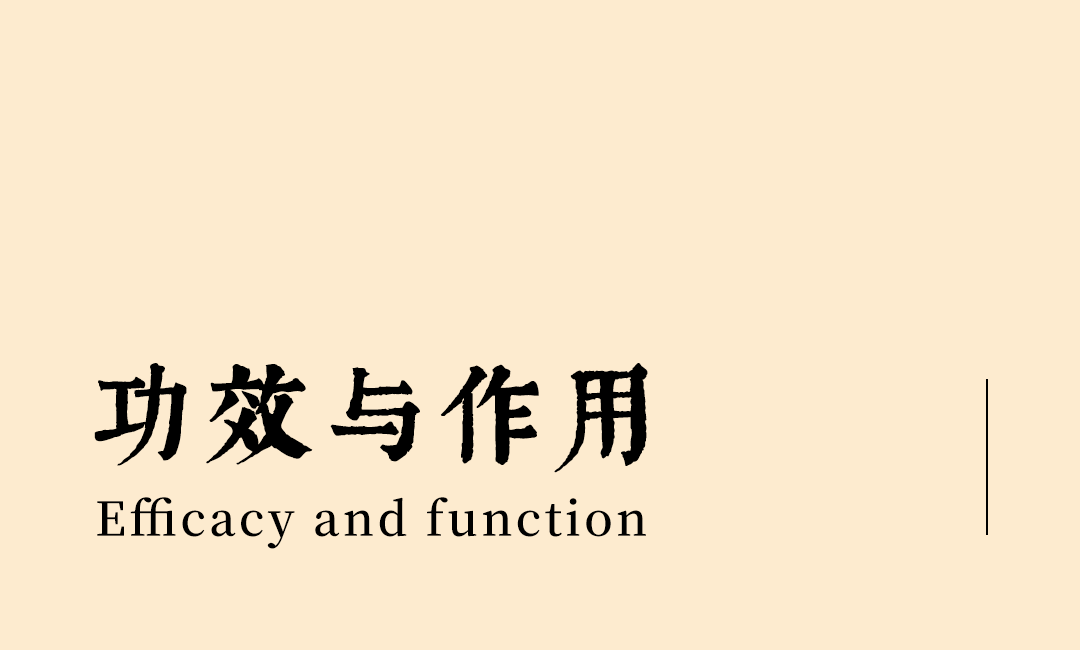
Historical texts have numerous records regarding the efficacy of dried ginger:
In the “Shennong Bencao Jing,” dried ginger is described as pungent and warm. It is indicated for chest fullness, cough, and counterflow of Qi, warming the middle, stopping bleeding, inducing sweating, expelling wind-dampness, and treating diarrhea. The fresh form is especially good. Long-term use eliminates foul odors and clears the mind.
In the “Beiji Qianjin Yaofang,” dried ginger is described as pungent, hot, and non-toxic. It is indicated for fullness in the chest, cough, warming the middle, stopping bleeding and sweating, expelling wind-dampness, treating diarrhea, cold abdominal pain, evil attacks, cholera, fullness, and various toxins. It can also stop blood in saliva, and the fresh form is especially good. Fresh ginger is slightly warm, non-toxic, and enters the five organs. It is indicated for febrile diseases, headaches, phlegm elimination, Qi regulation, inducing sweating, relieving nasal obstruction, counterflow of Qi, stopping vomiting, and eliminating foul odors in the chest, clearing the mind.
In the “Zhen Zhu Nang”: “Dried ginger has four uses: it opens the heart and assists Yang; it expels cold from the viscera; it releases cold from the meridians; it treats cold abdominal pain.”
In the “Bencao Qiuzhen”: “Dried ginger is very hot and non-toxic, it guards and does not escape. For all cases of cold in the stomach, where the original Yang is about to collapse, it can be combined with Fuzi (Aconite) for immediate effect. Hence, the saying ‘without ginger, Fuzi cannot warm.’ Formulas like ‘Si Ni San,’ ‘Bai Tong,’ and ‘Jiang Fu Decoction’ all use it. It can also be combined with Wumei (Chinese Plum) to open Lung Qi and treat cold cough, with Baizhu (Atractylodes) to dry dampness and tonify the Spleen, and with Guizhi (Cinnamon Twig) to enter Qi and generate blood. Therefore, for all cases of cold entering the interior, causing stagnation in the viscera, obstruction in the joints, meridian blockage, cold damp diarrhea, and counterflow of Qi, it can be used to rescue and eliminate cold.
Based on the comprehensive records in classical texts, the effects of dried ginger can be summarized as follows:
Warming the Middle and Dispelling Cold
This herb is pungent, hot, and dry, primarily entering the Spleen and Stomach, excelling in warming the middle, dispersing cold, and invigorating Spleen Yang, making it the main herb for warming the middle. It treats Spleen and Stomach deficiency cold, cold pain in the abdomen, and abdominal pain caused by cold evil directly entering.
The warming and pain-relieving effects are also commonly used to treat vomiting and diarrhea. Examples include Er Jiang Wan, Banxia Ganjiang San, and Ganjiang Huangqin Huanglian Ren Shen Tang.
Reviving Yang and Opening Meridians
Dried ginger is pungent and hot, entering the Heart, Spleen, and Kidney meridians, with effects of warming Yang, guarding the center, and reviving Yang to open the meridians. It can be used to treat Yang deficiency of the Heart and Kidney, and cold Yin excess leading to Yang collapse, weak pulse, and impending death. It is often used in conjunction with Fuzi for synergistic effects, enhancing the ability to revive Yang and rescue from collapse.
The ancient saying “without ginger, Fuzi cannot warm” also indicates that it can reduce the toxicity of Fuzi. Representative formulas include the “Si Ni Tang” for treating Yang collapse, diarrhea, blood loss, and cold extremities with weak pulse, which can be further enhanced with Ren Shen (Ginseng), as in the “Si Ni Tang with Ren Shen”.
Warming the Lungs and Transforming Phlegm
Dried ginger is pungent and hot, entering the Lung meridian, effectively warming the lungs, dispersing cold, and transforming phlegm. It is used to treat cough and wheezing due to cold phlegm, cold body and back, and clear, thin phlegm. It is often used with Xixin (Asarum), Wuweizi (Schisandra), and Mahuang (Ephedra), as in the “Xiao Qinglong Tang”; for treating Lung cold with phlegm retention, cough with fullness in the chest, and clear, thin phlegm, it is often combined with Fuling (Poria), Gancao (Licorice), and Wuweizi, as in the “Jinkui Yaolue Fuling Gancao Wuweizi Jiangxin Tang”.
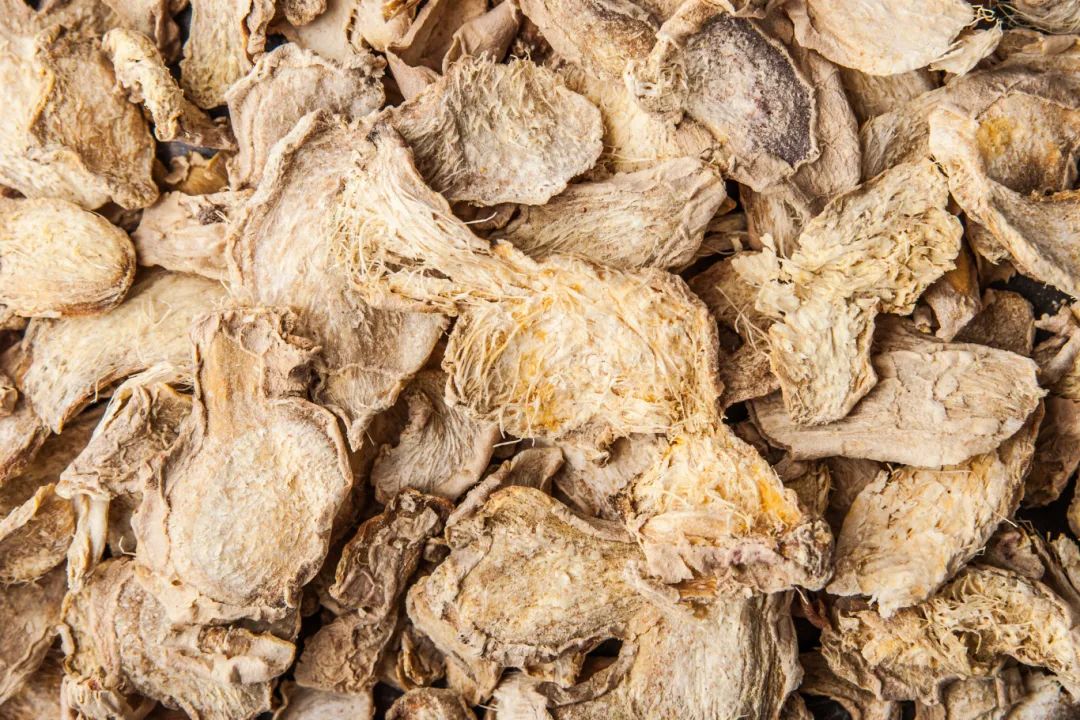
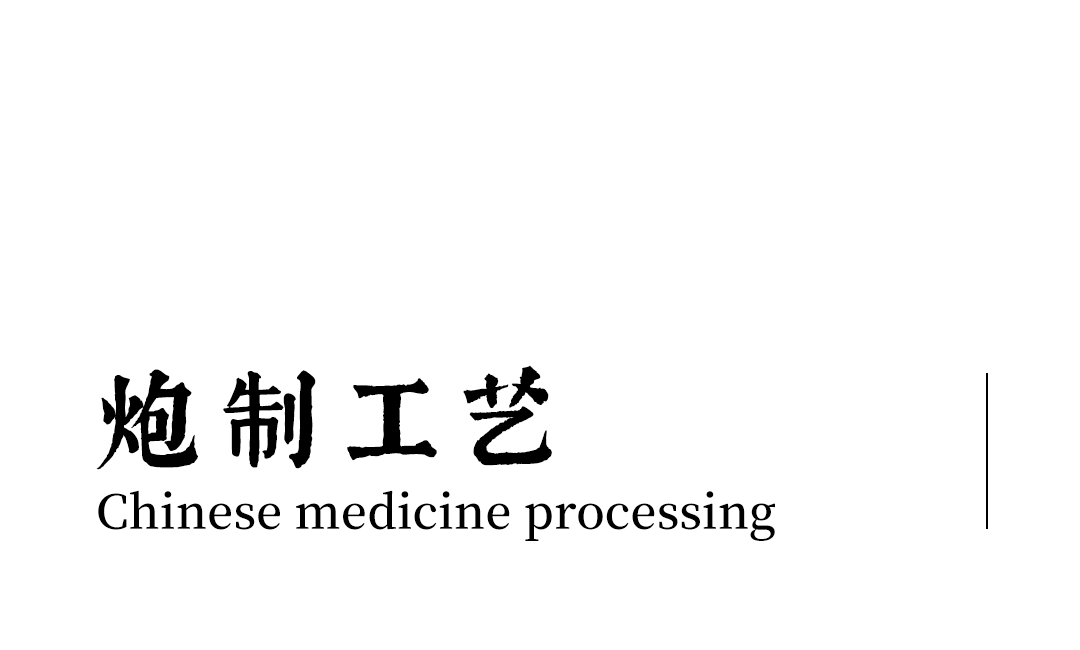
Dried ginger is first recorded in the “Shennong Bencao Jing” and is classified as a middle-grade herb. It has been included in many herbal texts throughout history. It is the dried rhizome of the ginger plant, a perennial herb of the Zingiberaceae family. It is primarily produced in Qianwei and Muchuan in Sichuan, as well as in Changshun and Xingren in Guizhou, and also in Guangdong, Guangxi, Hubei, and Fujian. All are cultivated.
Dried ginger is mostly harvested in winter. After digging up the roots, they are cleaned of soil, sun-dried, or dried over low heat, or the tender ginger is sliced and dried for medicinal use.
Commercial dried ginger is often made from mature ginger. The dried ginger from Sichuan is known for its spiciness and powdery texture, with the best quality coming from Qianwei in Sichuan, referred to as “Qian Gan Jiang.” The best products are white, powdery, and spicy.
According to the “Chinese Pharmacopoeia” (2010 edition), this product must contain at least 0.8% volatile oil (ml/g) and at least 0.60% gingerol (C17H26O4).
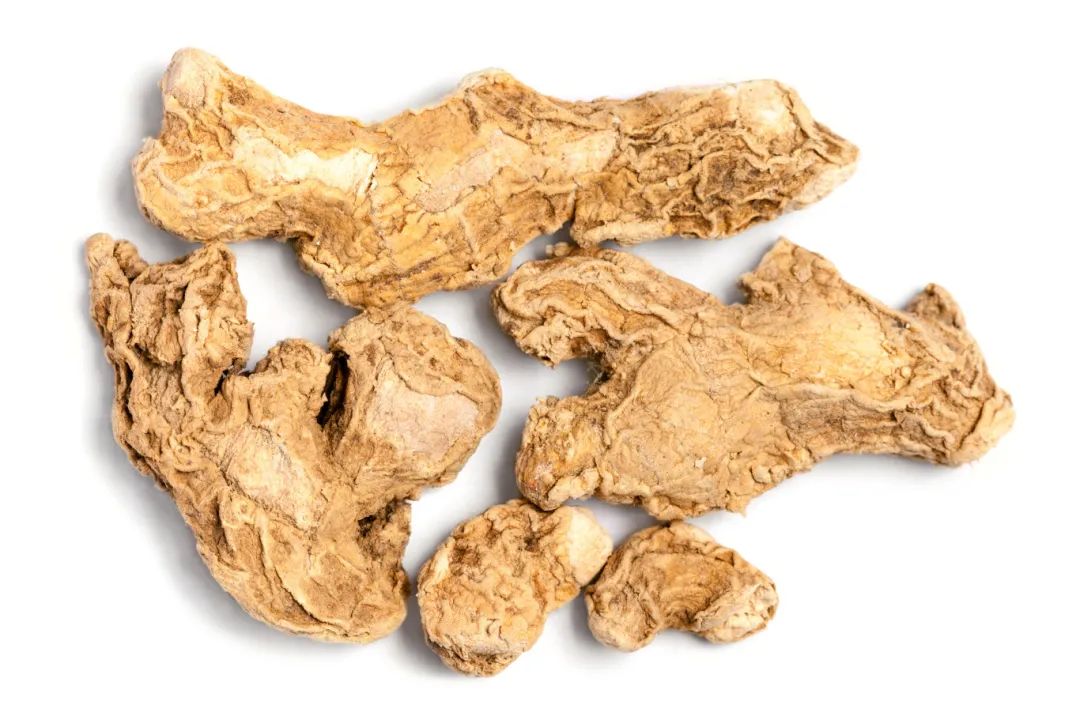
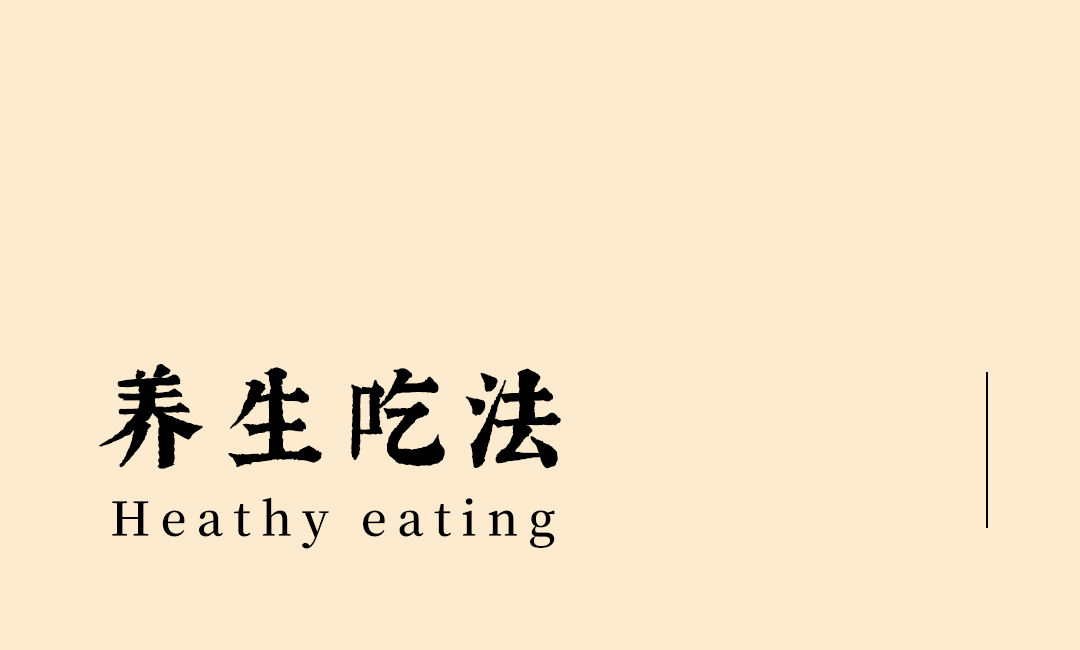
[ I ] Ginger Tea
Ingredients:Fresh ginger30g, hawthorn10g, black tea20g.
Method:Boil black tea with water200ml for 30 minutes, filter the tea, then boil again with another200ml of water, combine the two tea infusions. Crush fresh ginger and hawthorn, extract the juice using cheesecloth, and add it to the tea infusion. Sugar can be added to taste, stir well, and serve warm.
[ Ⅱ ] Inner Golden Dried Ginger Lamb Soup
Ingredients:250g lamb, 15g dried ginger, 12g chicken inner golden (chicken gizzard), 5 red dates.
Method:Lamb is cleaned and cut into pieces. Stir-fry in a hot pot to remove blood. Clean dried ginger, chicken inner golden, and red dates (pitted), and place them with lamb in a clay pot. Add an appropriate amount of water, bring to a boil over high heat, then simmer for 2 hours, season, and serve.
Usage:Serve with meals.
Effects:Warming the middle, dispersing cold, strengthening the Spleen, and stopping diarrhea. Used for chronic enteritis and chronic gastritis with Spleen and Stomach deficiency cold. Symptoms include cold pain in the abdomen, borborygmus, diarrhea with clear, watery stools several times a day, fatigue, and reduced appetite.
[ Ⅲ ] Ginger Stomach Soup
Ingredients:Fresh ginger50g, Galangal10g, pig stomach1 piece.
Method:Fresh ginger and Galangal are cleaned and chopped, placed inside the cleaned pig stomach, and simmered over low heat until cooked. Drink the soup and eat the stomach.
Effects:Warming the middle, tonifying deficiency, strengthening the Spleen, and harmonizing the Stomach.
[ Ⅲ ] Ginger Tea
Ingredients:Fresh ginger30g, hawthorn10g, black tea20g.
Method:Boil black tea with water200ml for 30 minutes, filter the tea, then boil again with another200ml of water, combine the two tea infusions. Crush fresh ginger and hawthorn, extract the juice using cheesecloth, and add it to the tea infusion. Sugar can be added to taste, stir well, and serve warm.
Effects:Promotes digestion and appetite.
Note:Those with Yin deficiency and excessive heat, blood heat, red eyes, or those suffering from carbuncles, pneumonia, lung abscess, tuberculosis, gastric ulcers, cholecystitis, pyelonephritis, diabetes, or hemorrhoids should avoid long-term consumption of fresh ginger. Pregnant women should use it cautiously.
According to the TCM theory of nine body constitutions, individuals suitable for consuming ginger are those with Yang deficiency constitution, as appropriate intake can warm the middle, strengthen the Spleen, and stop vomiting. Those with Yin deficiency or damp-heat constitution should avoid or limit their intake.
| Previous Reviews
# Li Liangji Awarded the Title of “Chinese Time-Honored Brand,” Inheriting a Century of Quality for a Brilliant Future
▲Click the black text to view the original article
# TCM Class: This Saturday, Special Guest Dr. Shou Weizhen, Thoracic Surgery Expert, Shares How to Prevent and Treat Lung Nodules and Lung Cancer, Scientifically Nourishing the Lungs!
▲Click the black text to view the original article
# Working During the Day, Nourishing Health at Night, Li Liangji’s Night Clinic Becomes a New Choice for Young People’s Nightlife
▲Click the black text to view the original article
# Is Your Child Frequently Sick, Has Poor Appetite, and Is Growing Slowly? During the Spring Growth Golden Period, Parents Can Do This~
▲Click the black text to view the original article
